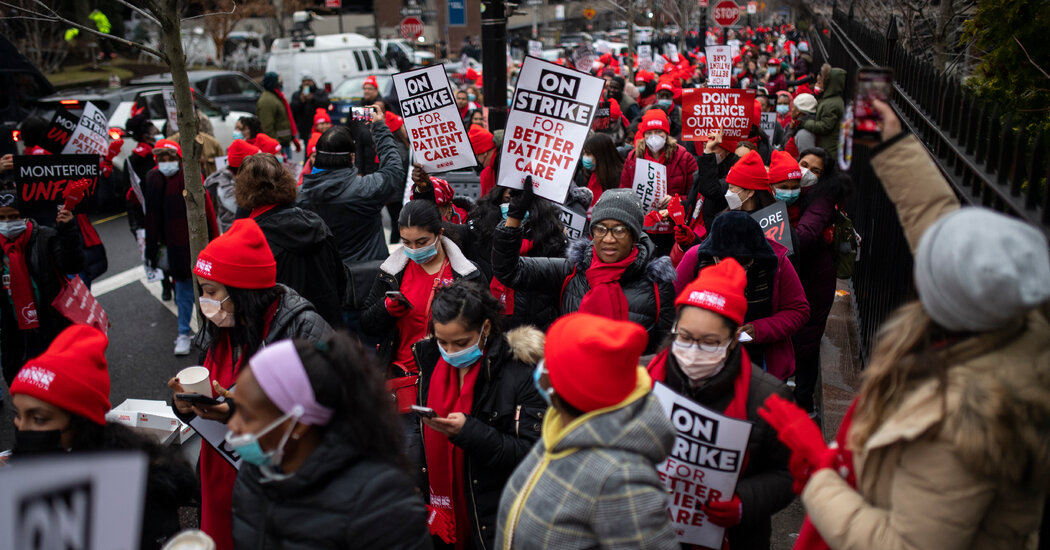Matt Allen, a labor nurse on the union negotiation team at Mount Sinai, said the main sticking point was establishing enforceable nurse-to-patient ratios. Currently, he said, there are staffing plans that indicate how many patients each nurse should care for, but they are not routinely enforced.
A new state law requires hospitals and nursing homes to maintain safe staffing levels, but the pandemic has slowed its enforcement. On Monday, Ms. James, the attorney general, called on the state’s health ministry to uphold the law in a speech during the Mount Sinai strike.
“They don’t want to put any patient at risk,” Ms James said of the nurses. “What they want to do is improve safety in this hospital and other hospitals, not just in the city but across the state.”
The union also recently signed preliminary agreements with Richmond University Medical Center, Flushing Hospital Medical Center, BronxCare and Brooklyn Hospital Center, and agreements have been ratified at NewYork-Presbyterian and Maimonides Medical Center. Negotiations continue with Interfaith Medical Center, Kingsbrook Jewish Medical Center and Wyckoff Heights Medical Center, all in Brooklyn.
In recent days, hospitals scrambled to make arrangements for the impending strike, including firing all patients who could safely, deploying replacement nurses, postponing many elective surgeries and diverting ambulances to other hospitals.
Mount Sinai began moving some vulnerable patients, including fragile newborns in neonatal intensive care units, to other hospitals, and helped cancer patients find alternative treatment sites.
Mayor Eric Adams said in a statement Sunday evening that the city was communicating with hospital systems but said hospitals in some areas of the city were likely to be under pressure.

